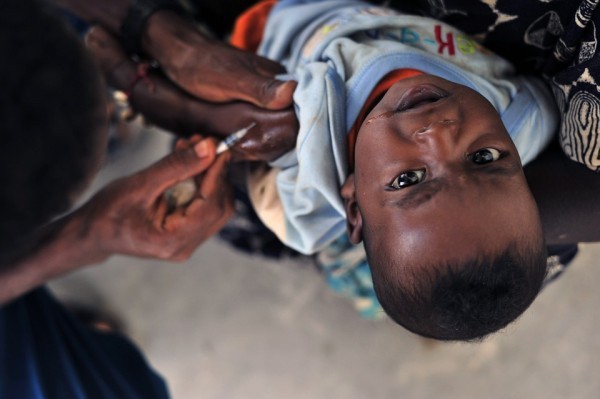
The first vaccine against Ebola virus is already approved, the US Food and Drug Administration announced in a press release.
Developed by Merck & Co., Inc, the vaccine Ervebo aims to protect people age 18 and older against Ebola virus disease (EVD). It is a single-shot vaccine genetically engineered to contain a protein from the Zaire ebolavirus -- the strain that killed more than 2,000 people in the eastern Democratic Republic of Congo (DRC) this year and around 11,000 deaths in Western Africa about five years ago.
Anna Abram, FDA Deputy Commissioner for Policy, Legislation, and International Affairs, said that while the risk for the virus is still low in the country, the said initiative was part of the federal government's commitment to ending the devastating outbreaks in Africa, notably in the DRC.
Since its first detection in 2014, only two died from the disease so far. All infected patients were either have travelled overseas or a health care worker who got infected while treating a patient.
The study which supported the approval of the vaccine was conducted in Guinea, a country located in West Africa, during the 2014-2016 outbreaks, the press release also said. At least 3,537 adult individuals have participated in the experiment.
Multiple assessments were also conducted on different areas like Liberia, Sierra Leone, Canada, Spain and the United States, and the study has proven that the antibody responses were similar among individuals in every areas.
The press release, however, warned for some side effects such as swelling and redness on the injection sites, fever, joint and muscle aches, and fatigue. But other than that, the vaccine is approved to be safe.
Distrust on Health Expert
A recent research revealed that at least a quarter of citizens in the DRC deny the existence of Ebola outbreak.
Lead author, Patrick Vinck from Harvard Medical School, said that the ongoing conflict between the citizens and the authorities cause the mass distrust, and it is making the combat more difficult as the people do not want to listen to the advice.
The police visibility during healthcare specialist visits raises questions and suspicious about their intention, Jean-Philippe Marcoux, Mercy Corps country director, revealed to Reteurs.
To fix this, the director promised to lessen the assistance.
What is Ebola Virus Disease?
The Ebola virus disease is a deadly disease that normally infects humans and other primates like chimpanzees and gorillas. It was named after the Ebola River in DRC, where it was first discovered in 1976. Since then, multiple outbreaks have occurred all over the African region, but the worst was the 2014 West African outbreak which started in Guinea.
Scientists think the virus was first transmitted to humans through infected animal contact. For the 2014 crisis, they believed that insectivorous free-tailed bats may be behind it.
The virus can be spread from human to human through body fluids, including semen and breast milk. The incubation period can last up to 21 days. Then, the patient will start experiencing "dry symptoms" like fever and fatigue, and eventually "wet symptoms, such as diarrhea and vomiting, as the person gets sicker.
According to the World Health Organization, detecting EVD could be difficult and requires six diagnosis tests, such as antibody-capture enzyme-linked immunosorbent assay (ELISA) and electron microscopy.
The average fatality rate of EVD is 50 percent, but it is curable with a proper good supportive clinical care. The patient's immune response also plays a role in their survival.
© 2025 NatureWorldNews.com All rights reserved. Do not reproduce without permission.





